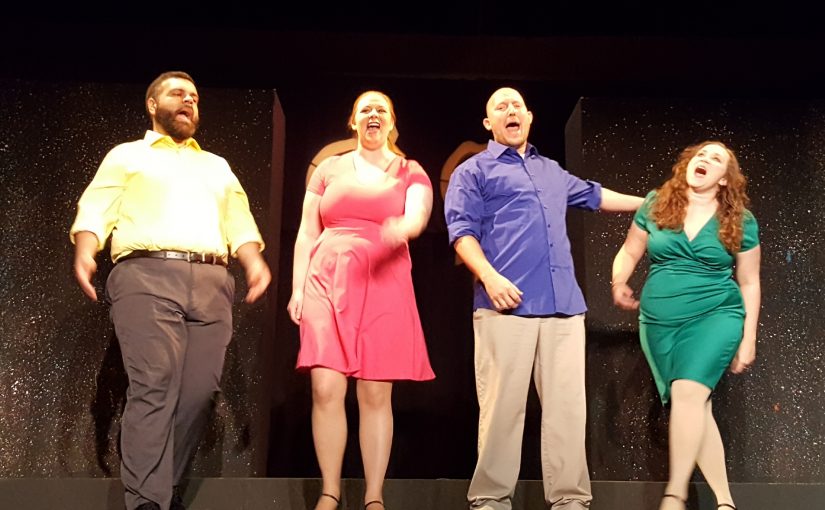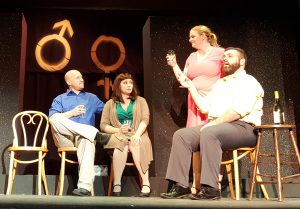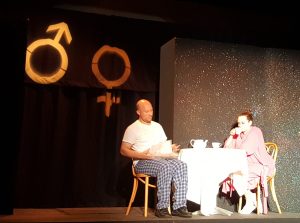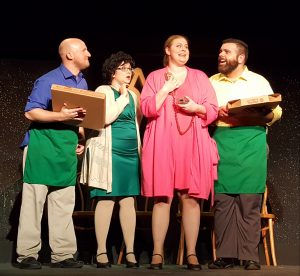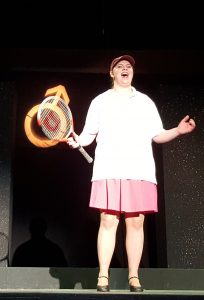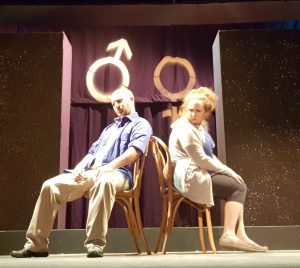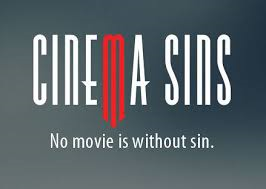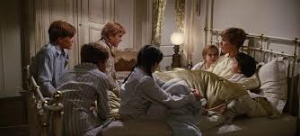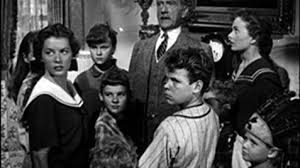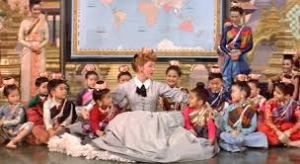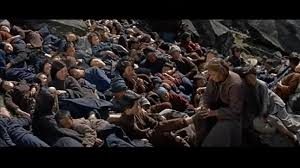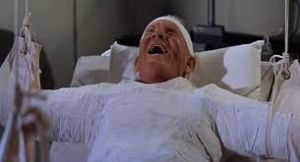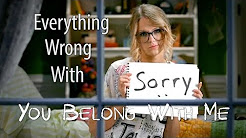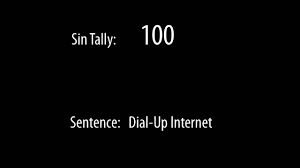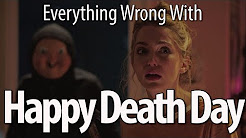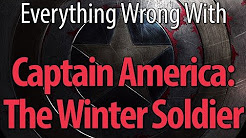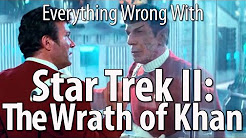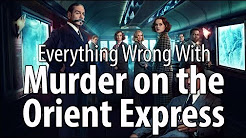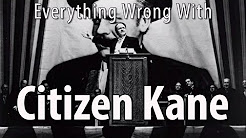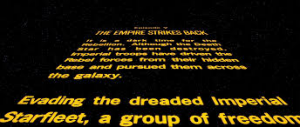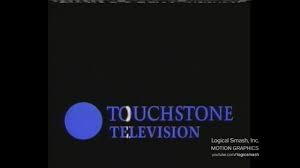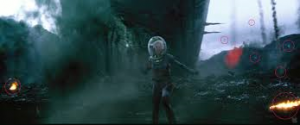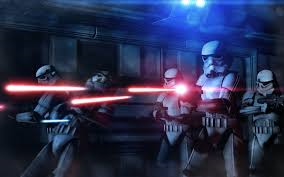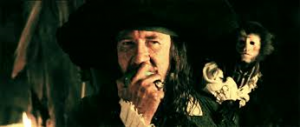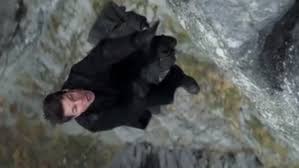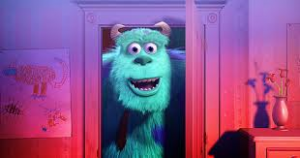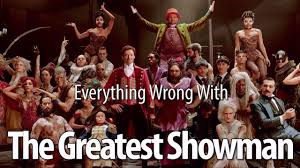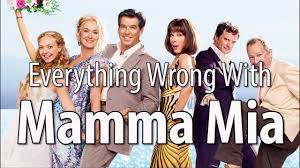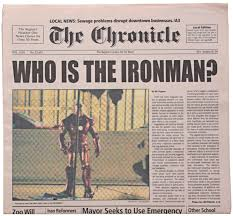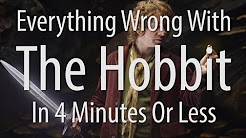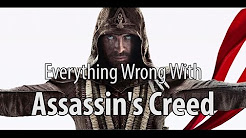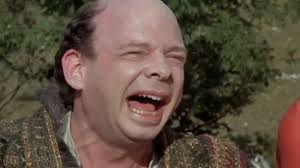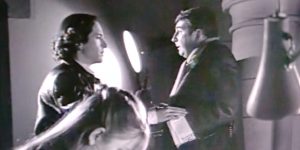SHORT TAKE:
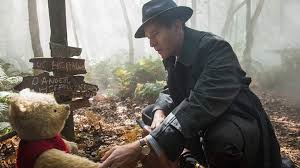 Christopher Robin attempts to show how a grown up with an intimate connection to a famous child's fantasy book, deals with adulthood in a British version of the equally weak Hook. Dull, ponderously slow, with a poorly thought out plot, while there's no reason NOT to take your child, there is very little to recommend it.
Christopher Robin attempts to show how a grown up with an intimate connection to a famous child's fantasy book, deals with adulthood in a British version of the equally weak Hook. Dull, ponderously slow, with a poorly thought out plot, while there's no reason NOT to take your child, there is very little to recommend it.
WHO SHOULD GO:
Anyone CAN go.
AND IF YOU LIKE THESE REVIEWS PLEASE SUBSCRIBE! THEN YOU'LL GET EVERY NEW REVIEW SENT STRAIGHT TO YOUR E-MAIL!!
GO TO THE BOTTOM OF THE LEFT HAND SIDE AND TYPE YOUR E-MAIL IN – IT (SHOULD BE) THAT EASY. ANY PROBLEMS PLEASE SEND ME A COMMENT AND I'LL DO MY BEST TO RESOLVE YOUR ISSUE.
LONG TAKE:
I REALLY wanted to like Christopher Robin. I had been looking forward to it for months, but the over trailer-ing should have given me a clue. Advertising too much is often a sign the film makers know they have an underachiever and throw everything up on the screen hoping it will attract enough audience to pay for itself.
The good news is there is nothing, per se, wrong with the movie and you can, I think, safely take a child of any age to see it. The biggest danger you run is that they will fall asleep.
The acting is excellent and special kudos go to 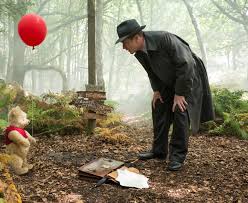 Ewan MacGregor, the grown up Christopher Robin, who, like
Ewan MacGregor, the grown up Christopher Robin, who, like 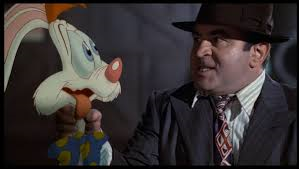 Bob Hoskins before him in Who Framed Roger Rabbit?, had to perform with … nothing. There was never a moment when these stuffed animals did not seem alive.
Bob Hoskins before him in Who Framed Roger Rabbit?, had to perform with … nothing. There was never a moment when these stuffed animals did not seem alive.
The voices were all very familiar. 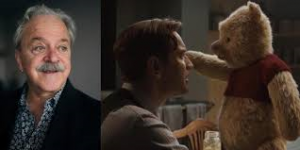 Jim Cummings, the only veteran in the crew, who has been speaking lines for Winnie the Pooh and Tigger since 1988 reprises the voice roles with his very familiar tranquil-laconic Pooh and loquacious-over excitable Tigger. The others re-create the other characters' voices almost flawlessly. I only wish the story had been as well conceived.
Jim Cummings, the only veteran in the crew, who has been speaking lines for Winnie the Pooh and Tigger since 1988 reprises the voice roles with his very familiar tranquil-laconic Pooh and loquacious-over excitable Tigger. The others re-create the other characters' voices almost flawlessly. I only wish the story had been as well conceived.
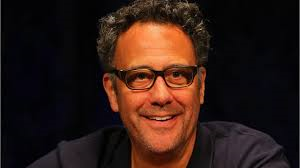 Brad Garrett is the eighth person to groan the apathetic donkey, since Disney’s original featurettes.
Brad Garrett is the eighth person to groan the apathetic donkey, since Disney’s original featurettes. 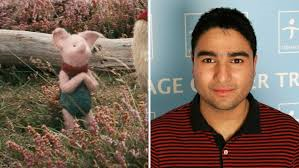 Nick Mohammed is the fourth Piglet.
Nick Mohammed is the fourth Piglet. 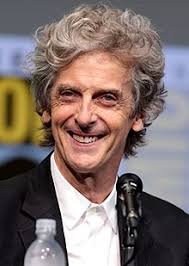 Peter Capaldi, the twelfth Dr Who (thirteenth if you count John Hurt), is the sixth Rabbit.
Peter Capaldi, the twelfth Dr Who (thirteenth if you count John Hurt), is the sixth Rabbit. 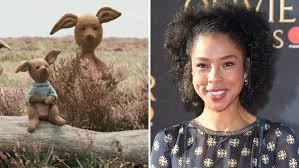 Kanga is voiced by Sophie Okonedo (Liz Ten, the Queen in Dr Who), Roo by Sara Sheen. And
Kanga is voiced by Sophie Okonedo (Liz Ten, the Queen in Dr Who), Roo by Sara Sheen. And 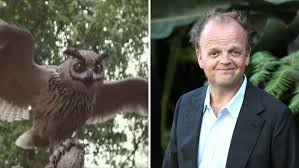 Toby Jones, character actor from Sherlock, Dr. Who, Jurassic World: Fallen Kingdom and an Avengers baddie, does a kiddie movie turn as Owl.
Toby Jones, character actor from Sherlock, Dr. Who, Jurassic World: Fallen Kingdom and an Avengers baddie, does a kiddie movie turn as Owl.
 Hayley Atwell (Peggy Carter, Captain America's first girlfriend) is lovely as Christopher’s wife and
Hayley Atwell (Peggy Carter, Captain America's first girlfriend) is lovely as Christopher’s wife and 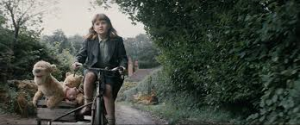 Bronte Carmichael is very sweet as Christopher’s little girl Madeleine. The performers acted their little hearts out.
Bronte Carmichael is very sweet as Christopher’s little girl Madeleine. The performers acted their little hearts out.
The bad news is that the resulting film was so disappointing it made me mad. So I hereby present to you:
SEVEN REASONS WHY CHRISTOPHER ROBIN, THE MOVIE, MADE ME MAD:
Where should I begin?
How about with a list?
1. Winnie gave me the creeps; 2. the theme was stupid; 3. there were a LOT of missed opportunities; 4. poor character development; 5. profoundly stupid historic inaccuracies; 6. man abuse; and 7. the crowning jewel of all ignorant decisions.
SPOILERS
1. WINNIE AND FRIENDS GAVE ME THE CREEPS
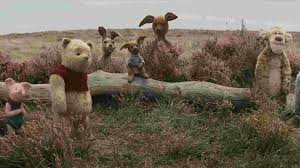 The animals gave me the creeps.
The animals gave me the creeps. 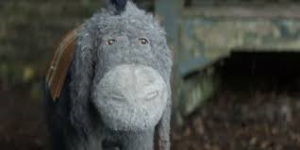 They were dirty and old and used looking. Not at all the way a small child would see them or an adult in fond memory. They looked as you might find them mouldering away in some old attic. And, save, for some reason, Rabbit, their faces barely moved. They were virtually expressionless. This all would have made some sense if, as time went on and Christopher spent more time with them, they started appearing cleaner and newer and more alive. But, alas, they continued in their bedraggled state throughout the course of the movie. A child would not have noticed them being dirty so if we, the audience and Christopher are looking at them through his child eyes, then they would have seemed fresh and new. If we are looking at them REALISTICALLY, through the eyes of the jaded and adult Christopher why were they animated at ALL? And, if we are looking at them realistically, why do any of the other humans see them move or talk? If this was all part of Christopher’s delusions, no one else would have seen them animated.
They were dirty and old and used looking. Not at all the way a small child would see them or an adult in fond memory. They looked as you might find them mouldering away in some old attic. And, save, for some reason, Rabbit, their faces barely moved. They were virtually expressionless. This all would have made some sense if, as time went on and Christopher spent more time with them, they started appearing cleaner and newer and more alive. But, alas, they continued in their bedraggled state throughout the course of the movie. A child would not have noticed them being dirty so if we, the audience and Christopher are looking at them through his child eyes, then they would have seemed fresh and new. If we are looking at them REALISTICALLY, through the eyes of the jaded and adult Christopher why were they animated at ALL? And, if we are looking at them realistically, why do any of the other humans see them move or talk? If this was all part of Christopher’s delusions, no one else would have seen them animated.
The stuffed animals in Christopher Robin all had more in common with Sid’s toys in Toy Story than in a visit to the Hundred Acre Woods.
2. THE THEME WAS STUPID
The theme was "sometimes you have to do nothing to do something" ….uuum? What? Christopher takes this to heart and brings it to his employer, the owner of a luggage manufacturing company, as a solution to their economic woes. That they should give all of their employees two weeks paid leave so they will buy luggage … to go on holiday. This would be like giving someone $100 to spend $25 in your store and then calling that $25 a profit. Based on this, NO one should put Christopher in charge of a business. NOW – he ALSO, as an offhand comment, suggests they should have a line of luggage for the "common" folk, rather than exclusively produce for the wealthy. Well, OK, that’s a good idea but not when linked to the other one.
3. MISSED OPPORTUNITIES
With three screenplay writers, two "story by" credits and based on the works of A.A. Milne and Ernest Shepard, you would think Disney could have come up with a tight clever plot. Instead, it plays out exactly what it is – a story mashed together by committee.
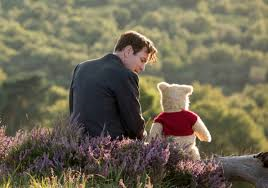 Why didn’t Christopher bring his daughter with him when he followed Pooh to the Hundred Acre Woods for the first time in 30 years? Or have the writers have her follow him in? She was available having just seen the red balloon Christopher left her on her bike. He knew she would eventually figure out he had been there. His balloon gift made it no secret he had been in the vicinity, so why did he not just bring Madeleine with him?
Why didn’t Christopher bring his daughter with him when he followed Pooh to the Hundred Acre Woods for the first time in 30 years? Or have the writers have her follow him in? She was available having just seen the red balloon Christopher left her on her bike. He knew she would eventually figure out he had been there. His balloon gift made it no secret he had been in the vicinity, so why did he not just bring Madeleine with him?
From a plot point of view, this would have thematically helped establish a bridge between his youth and adulthood, AND allowed him to see his favorite playground from a fresh set of youthful eyes, AND provided Christopher with someone to bounce dialogue off of aside from talking to himself, of which he does a lot.
Why didn’t he see his reflection in a pool of water as a Heffalump? The idea is casually alluded to but the writers ignored the chance to bring this to the forefront and make it part of his character arc.
There is ONE good line in Hook, 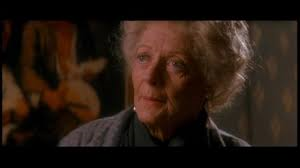 when the aged Wendy, finding out Peter has grown up to be an attorney specializing in corporate takeovers quips: "Peter, you’ve become a pirate!" Similarly, an image of the heffalump in place of the grown Christopher’s reflection could have been a touchstone moment. Instead he flails about with an unseen imaginary invisible heffalump to deliberately fool his stuffed animal friends.
when the aged Wendy, finding out Peter has grown up to be an attorney specializing in corporate takeovers quips: "Peter, you’ve become a pirate!" Similarly, an image of the heffalump in place of the grown Christopher’s reflection could have been a touchstone moment. Instead he flails about with an unseen imaginary invisible heffalump to deliberately fool his stuffed animal friends.
Why couldn't, for example, each of the Hundred Acre inhabitants represent a change Christopher needed to make or an issue he had to resolve? Winnie could be his need to relax. Tigger to inspire finding the joys of childhood. Eeyore his insecurities. Kanga and Roo to renew and deepen his relationship with his wife and daughter, etc. 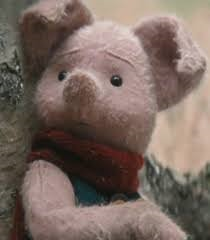 Nope they were just dirty tag overs, apparently abandoned in a dust covered corner of his attic.
Nope they were just dirty tag overs, apparently abandoned in a dust covered corner of his attic.
4. POOR CHARACTER DEVELOPMENT
There is little transition for Christopher from becoming a man so business oriented he reads hard economic texts to his daughter for bedtime stories to someone talking to an animated bear. 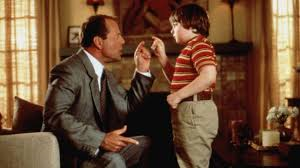 Bruce Willis' character, Russ, in the comedy The Kid is inexplicably faced with the incarnation of his 10 year old self. Like the appearance of Winnie the Pooh in Christopher Robin, this manifestation forces the protagonist to confront some unpleasant truths about his grown up self. However, Russ, in The Kid, does not accept the little boy's identifty or even existence right away. Russ, first, seeks professional counseling, takes medication, and enlists the help of his personal assistant, all to simply prove to himself the kid is actually there and that others can see him. Putting aside that this was just a better movie by several factors of ten, this single point is a more realistic portrayal of someone coming to grips with an unknown. And Russ was only faced with a child, not a walking talking stuffed animal.
Bruce Willis' character, Russ, in the comedy The Kid is inexplicably faced with the incarnation of his 10 year old self. Like the appearance of Winnie the Pooh in Christopher Robin, this manifestation forces the protagonist to confront some unpleasant truths about his grown up self. However, Russ, in The Kid, does not accept the little boy's identifty or even existence right away. Russ, first, seeks professional counseling, takes medication, and enlists the help of his personal assistant, all to simply prove to himself the kid is actually there and that others can see him. Putting aside that this was just a better movie by several factors of ten, this single point is a more realistic portrayal of someone coming to grips with an unknown. And Russ was only faced with a child, not a walking talking stuffed animal.
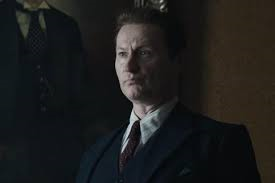 Alas, Mark Gatiss, we thought he knew better, Horatio. Mark Gatiss, (writer and actor from Sherlock and Dr Who) was roped into embarrassing himself, with a bad toupee, in the thankless task of a caricature bad boss. His Giles Winslow is so shallow it could have been replaced by a drawn stick figure. Gatiss is a wonderful actor but he was given little to do but tell Christopher to work on the weekend, knock over the same display several times in an incomprehensible show of clumsiness, which was neither amusing nor set up for any later pay off, and sulk when thwarted.
Alas, Mark Gatiss, we thought he knew better, Horatio. Mark Gatiss, (writer and actor from Sherlock and Dr Who) was roped into embarrassing himself, with a bad toupee, in the thankless task of a caricature bad boss. His Giles Winslow is so shallow it could have been replaced by a drawn stick figure. Gatiss is a wonderful actor but he was given little to do but tell Christopher to work on the weekend, knock over the same display several times in an incomprehensible show of clumsiness, which was neither amusing nor set up for any later pay off, and sulk when thwarted.
5. PROFOUNDLY STUPID HISTORIC INACCURACIES
The movie Christopher Robin shows the father as anxious to send the boy Christopher to boarding school and the mother sympathetic. Goodbye, Christopher Robin, the far superior biopic about the relationshiop between A.A. Milne and his son, was much more historically accurate, based upon the verifying documentation of the real Christopher's interaction with his mother and the fact he wouldn't have anything to do with the fortune made from the Winnie the Pooh stories. 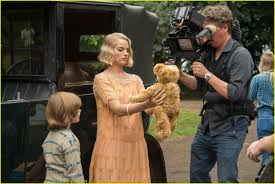 It was the MOTHER, in real life, who was callous and cold and couldn’t wait to be rid of the boy. OK, this is a Disney movie. I can overlook that alteration.
It was the MOTHER, in real life, who was callous and cold and couldn’t wait to be rid of the boy. OK, this is a Disney movie. I can overlook that alteration.
In C.R., his father dies while he is in boarding school, making him the "man of the house" when he was about 11. 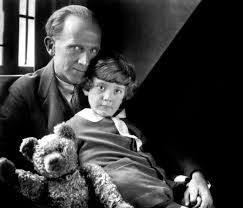 In fact, as accurately portrayed in Goodbye, Christopher Robin, his father didn’t die until after Christopher had grown, been to war, declared MIA,
In fact, as accurately portrayed in Goodbye, Christopher Robin, his father didn’t die until after Christopher had grown, been to war, declared MIA,  returned,
returned,  and reconciled with Christopher. Christopher was 36 years old when A.A. Milne died. There was no particular reason for the premature "killing off" of Christopher Robin's father in this Disney misadventure except, perhaps, to explain why Christopher was in an unfulfilling job at a luggage factory. Reality would have provided a better plot point here too. In fact, Christopher rejected all of the money made from his father’s books and ran his own bookstore instead. This could easily have been worked in as a far more interesting character development issue.
and reconciled with Christopher. Christopher was 36 years old when A.A. Milne died. There was no particular reason for the premature "killing off" of Christopher Robin's father in this Disney misadventure except, perhaps, to explain why Christopher was in an unfulfilling job at a luggage factory. Reality would have provided a better plot point here too. In fact, Christopher rejected all of the money made from his father’s books and ran his own bookstore instead. This could easily have been worked in as a far more interesting character development issue.
Christopher detested his boarding school days and would NEVER have considered sending a beloved daughter there.
Christopher’s obsession with turning his daughter into a career woman was massively anachronistic for the early 1950's.
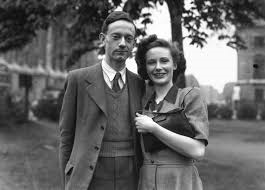 The real Christopher DID indeed marry but to a Leslie, not an Evelyn. And he did have a daughter but her name was Clare not Madeleine and she had cerebral palsy.
The real Christopher DID indeed marry but to a Leslie, not an Evelyn. And he did have a daughter but her name was Clare not Madeleine and she had cerebral palsy.
While I completely understand taking creative liberties for the sake of a story, if you are going to diverge THAT MUCH from an established and well known historic figure, why don’t you just create a NEW person out of whole cloth who has, perhaps, been INFLUENCED by the Winnie the Pooh stories and not concoct this absurd confabulation of made up "facts" about a real human whose past was rather well documented and easy to confirm.
6. MAN ABUSE
Here's a quiz for you. What do Click,
Click, 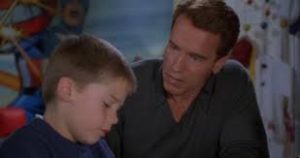 Jingle All The Way,
Jingle All The Way, 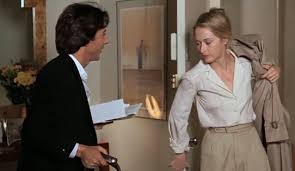 Kramer vs Kramer,
Kramer vs Kramer, 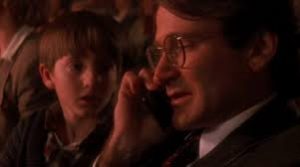 Hook, and even
Hook, and even 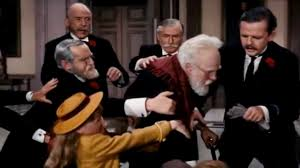 Mary Poppins to a certain extent – all have in common? ANSWER: Hard working, faithful husbands who are painted as the bad guy because they are busting their buns to provide for their families. In return, all they get is guilt from unappreciative wives and whiny children. I am sick to death of movies who cast men, who deny themselves fun and recreation, who proudly provide for their families, as negligent, solely on the grounds of that hard work.
Mary Poppins to a certain extent – all have in common? ANSWER: Hard working, faithful husbands who are painted as the bad guy because they are busting their buns to provide for their families. In return, all they get is guilt from unappreciative wives and whiny children. I am sick to death of movies who cast men, who deny themselves fun and recreation, who proudly provide for their families, as negligent, solely on the grounds of that hard work.
What do these women WANT? 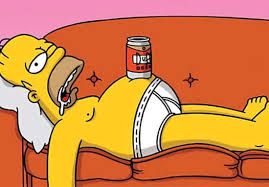 Homer Simpson? Then, if a man is portrayed as fun loving, as in
Homer Simpson? Then, if a man is portrayed as fun loving, as in 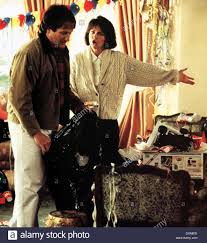 Mrs. Doubtfire, this behavior is presented as grounds on which to dump him and trade up to a rich established guy. And in Christopher Robin they do it again. Christopher is chided by his wife, raled at (behind his back) by his daughter and threatened (subtly) with divorce (I think we'll stay out here at the cottage for a while LONGER). Why? Because he had to forego a vacation when faced, by his superior, with two days to figure out how to cut 20% of the costs in his department without FIRING 20% of his people. I do not think his wife had any sense of proportion.
Mrs. Doubtfire, this behavior is presented as grounds on which to dump him and trade up to a rich established guy. And in Christopher Robin they do it again. Christopher is chided by his wife, raled at (behind his back) by his daughter and threatened (subtly) with divorce (I think we'll stay out here at the cottage for a while LONGER). Why? Because he had to forego a vacation when faced, by his superior, with two days to figure out how to cut 20% of the costs in his department without FIRING 20% of his people. I do not think his wife had any sense of proportion.
7. THE CROWN JEWEL OF IGNORANCE
And finally, the most egregious, most nonsensical, most distracting transgression was that the protagonist of the movie, acknowledged as the son of the author of Winnie the Pooh, was called Christopher Robin. His boss, who refers to everyone by their last names, calls him Robin. His WIFE is referred to as Mrs. Robin!!! This is not only wrong, it is profoundly STUPID, and worse, without purpose!! The name of the son of the author of Winnie the Pooh was NOT Christopher Robin!!! It was Christopher Robin MILNE!!! His father, the author of Winnie the Pooh was A.A. MILNE!!! The name "Milne" is never even mentioned!!! It is as though the screenwriters relied for accuracy on someone whose only experience with Winnie the Pooh was to watch one Disney short, for the first time, as an adult. And, I checked, there is no evidence to indicate that Christopher Robin MILNE, though he distanced himself from his father’s books and even his father’s money, EVER distanced himself from his family name.  Christopher MILNE even wrote a book himself, The Enchanted Places, under the name Christopher MILNE!!!
Christopher MILNE even wrote a book himself, The Enchanted Places, under the name Christopher MILNE!!!
You know, even wikipedia knows more than this. Pick up a BOOK why don’t you, Disney screenwriters, and look on the edge for the author's name!
So — take a small child if you must. There’s nothing really WRONG with the movie. But there is little right with it either. Personally, I think you’d be better off digging out one of the books by A.A. MILNE and reading the original to them. Or go back and watch The Kid. 
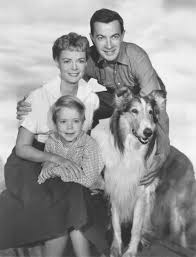 family friendly Lassie franchise featuring such luminaries as
family friendly Lassie franchise featuring such luminaries as 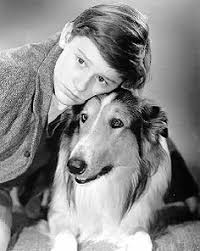 Roddy McDowell to the
Roddy McDowell to the  R-rated cult favorite oddity starring
R-rated cult favorite oddity starring 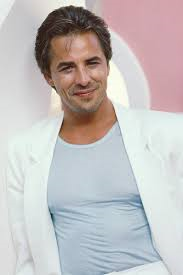 Miami Vice’s Don Johnson, when he was himself a puppy, called
Miami Vice’s Don Johnson, when he was himself a puppy, called 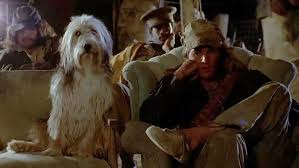 A Boy and His (telepathic) Dog.
A Boy and His (telepathic) Dog. 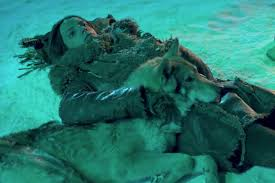 Alpha is yet another installment in this litany of (how my friend Franklin describes all movies as) a love story with a twist. And I am a sucker for a well done dog movie.
Alpha is yet another installment in this litany of (how my friend Franklin describes all movies as) a love story with a twist. And I am a sucker for a well done dog movie.
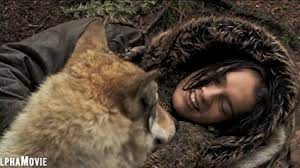 The trailer for Alpha, as is unfortunately the case with most movies nowadays, gives away more than it should. So if you have seen any trailers there will be no additional spoilers. However, I did not find, having seen the trailer and the previews of scenes, take away from the suspense, or enjoyment of the movie.
The trailer for Alpha, as is unfortunately the case with most movies nowadays, gives away more than it should. So if you have seen any trailers there will be no additional spoilers. However, I did not find, having seen the trailer and the previews of scenes, take away from the suspense, or enjoyment of the movie.
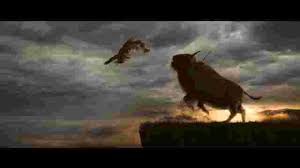 He is injured,
He is injured, 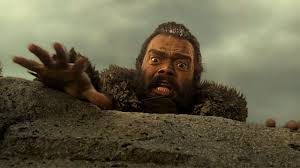 separated from the tribe, and left, thought dead.
separated from the tribe, and left, thought dead.
 portrayed by Chuck, a Czechoslavakian Wolfhound.
portrayed by Chuck, a Czechoslavakian Wolfhound.
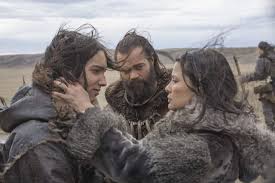 with a close knit family structure, established spiritual philosophy and able to communicate complex thoughts with a detailed language. They're courageous problem solvers, in a defended village, who live in large dome-shaped thatched and mud reinforced wigwams – perfectly recognizable modern humans only without the modern conveniences.
with a close knit family structure, established spiritual philosophy and able to communicate complex thoughts with a detailed language. They're courageous problem solvers, in a defended village, who live in large dome-shaped thatched and mud reinforced wigwams – perfectly recognizable modern humans only without the modern conveniences.
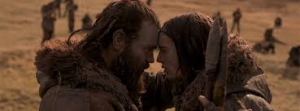 I really like the dynamic portrayed between the wise and gentle, big and burly father as he attempts to train and teach his much gentler son to be the next chief of their tribe.
I really like the dynamic portrayed between the wise and gentle, big and burly father as he attempts to train and teach his much gentler son to be the next chief of their tribe. 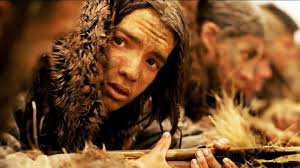 It is a universal, even cliche, conflict and eventual resolution between the expectations of a loving father and the inherent predispositions and abilities of an anxious to please son, played out in what I thought was a new and interesting way.
It is a universal, even cliche, conflict and eventual resolution between the expectations of a loving father and the inherent predispositions and abilities of an anxious to please son, played out in what I thought was a new and interesting way.
 And I thought especially well played out how the father's teachings provided the boy with invaluable assistance to confront the overwhelming challenges when on his own, how the boy used his father's wisdom, in combination with his own unique approach and instincts, to confront the harrowing trials he had to endure through his long, seemingly impossible journey home – how the unprepared boy, faced with almost certain death, embraces his father's lessons to meet these unplanned tests.
And I thought especially well played out how the father's teachings provided the boy with invaluable assistance to confront the overwhelming challenges when on his own, how the boy used his father's wisdom, in combination with his own unique approach and instincts, to confront the harrowing trials he had to endure through his long, seemingly impossible journey home – how the unprepared boy, faced with almost certain death, embraces his father's lessons to meet these unplanned tests. 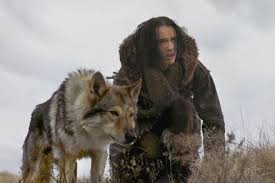 Both the audience and he realize along the way, that if he survives his adventure, he will become the capable man and leader he otherwise would not have been.
Both the audience and he realize along the way, that if he survives his adventure, he will become the capable man and leader he otherwise would not have been.
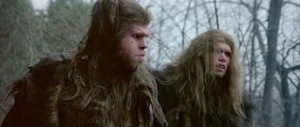 The characters in Quest for Fire were brutish, and almost comically animalistic as they fell out of trees and laughed at injuries they inflicted on each other, taking food and
The characters in Quest for Fire were brutish, and almost comically animalistic as they fell out of trees and laughed at injuries they inflicted on each other, taking food and 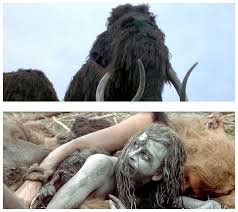 sexual favors in behavior more akin to a tribe of gorillas than a tribe of humans.
sexual favors in behavior more akin to a tribe of gorillas than a tribe of humans.
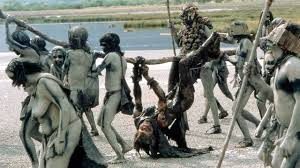 was a very adult film full of graphic cruelty and casual sexuality, portraying humans as projections of the unproven and largely discreditable Darwinian fallacy of a descendance from apes, which nonetheless is still forced into our schooling system.
was a very adult film full of graphic cruelty and casual sexuality, portraying humans as projections of the unproven and largely discreditable Darwinian fallacy of a descendance from apes, which nonetheless is still forced into our schooling system. 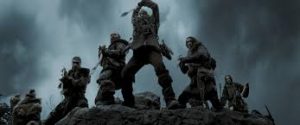 It was refreshing that the makers of Alpha saw pre-historic homo sapiens as virtually identical to our current men,
It was refreshing that the makers of Alpha saw pre-historic homo sapiens as virtually identical to our current men, 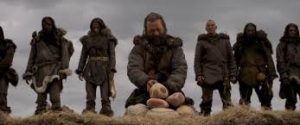 in all of the fundamental ways that unite us as humans.
in all of the fundamental ways that unite us as humans.
 Though Alpha does include some violence, most of it happens very quickly, and either in the dark or off screen. In addition, there are a few scenes with maggots and dead rotting animals. As a friend of mine noted, however, nothing you would not see on a hot summer day when you go to take out the trash in my hometown of Lake Charles, Louisiana.
Though Alpha does include some violence, most of it happens very quickly, and either in the dark or off screen. In addition, there are a few scenes with maggots and dead rotting animals. As a friend of mine noted, however, nothing you would not see on a hot summer day when you go to take out the trash in my hometown of Lake Charles, Louisiana.
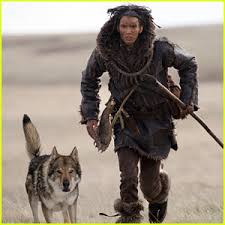 especially if they like dogs.
especially if they like dogs. 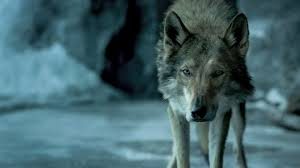 I would not recommend it for a child who was upset unduly by jump- scares, or gross out images.
I would not recommend it for a child who was upset unduly by jump- scares, or gross out images.
 The cinematography is gorgeous, even occasionally breathtaking, in the panoramic vistas of undeveloped Canada, masquerading as prehistoric Europe.
The cinematography is gorgeous, even occasionally breathtaking, in the panoramic vistas of undeveloped Canada, masquerading as prehistoric Europe.
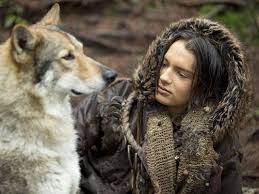
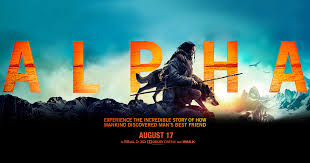
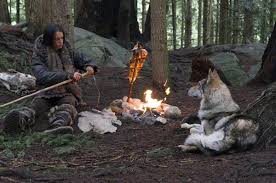
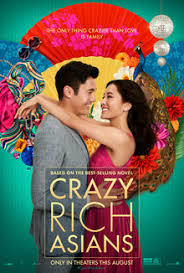
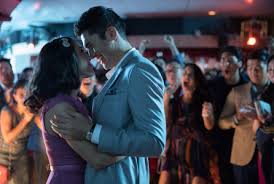
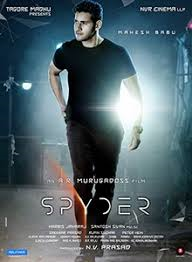
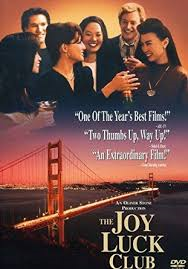


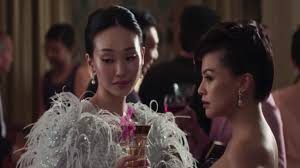


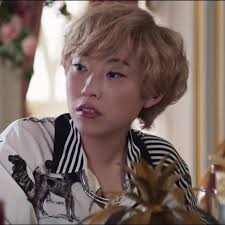
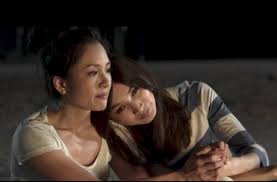
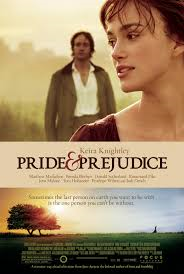

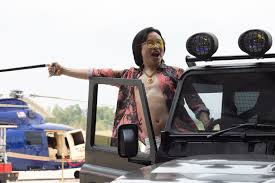
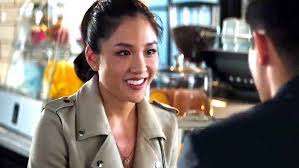
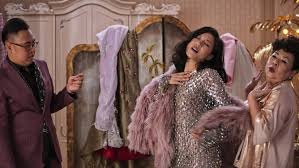

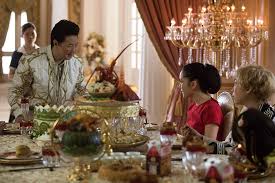
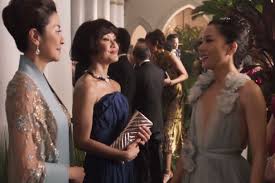
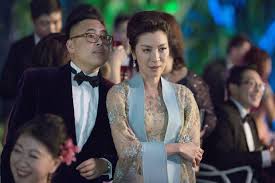

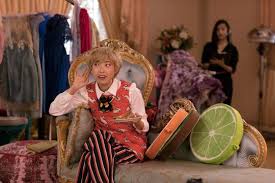


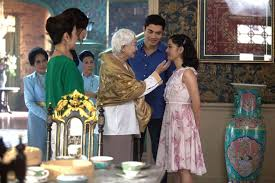

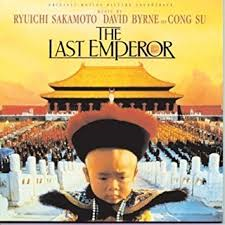
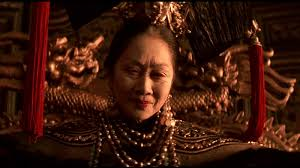
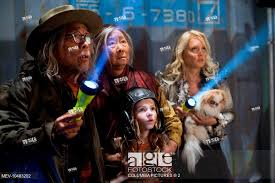
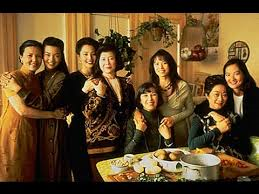

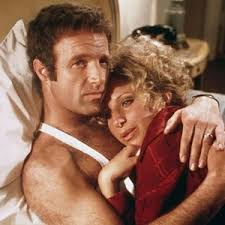
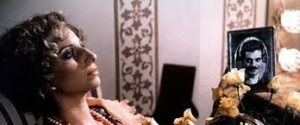


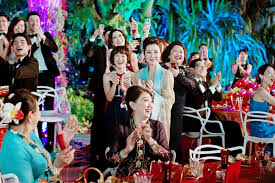

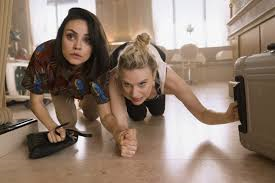
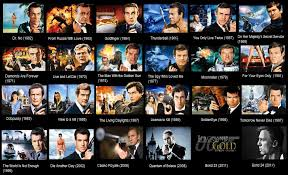
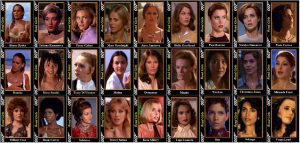
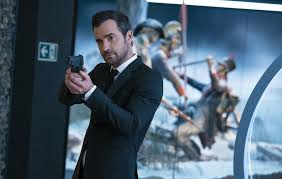
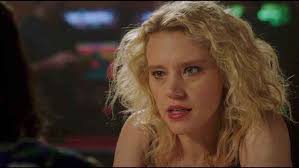
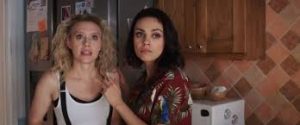
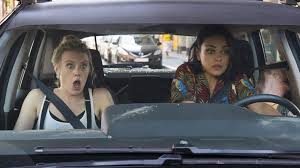

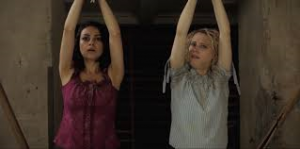




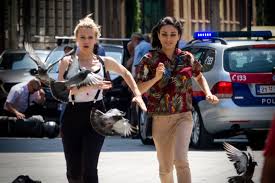
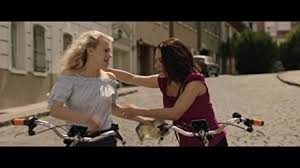
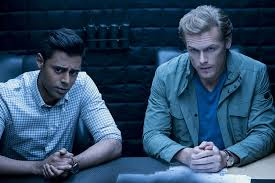
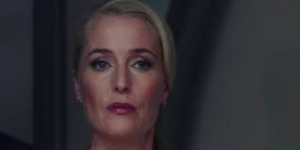
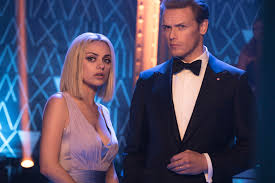
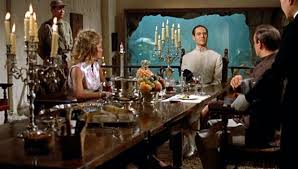
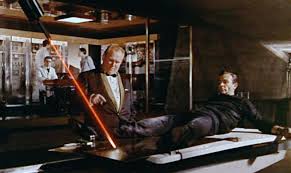
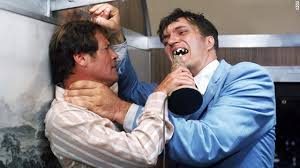
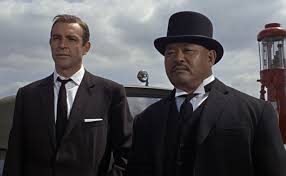
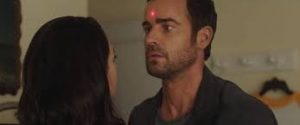


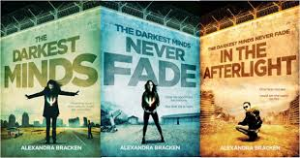
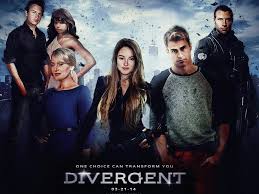
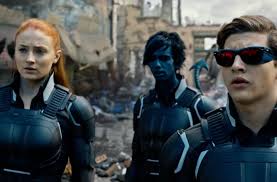 the new/retro X-Men then flavor with a teaspoon of
the new/retro X-Men then flavor with a teaspoon of 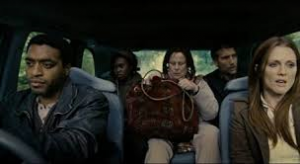

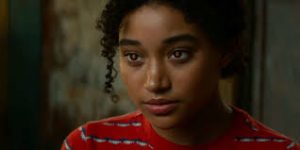
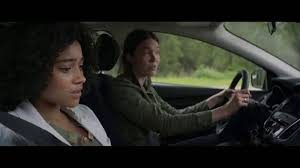


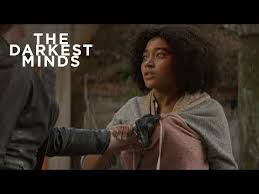
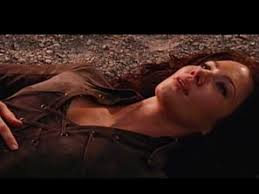
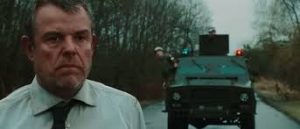
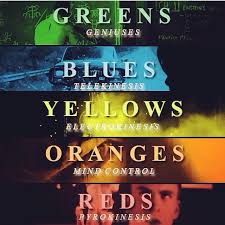
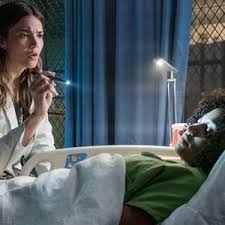

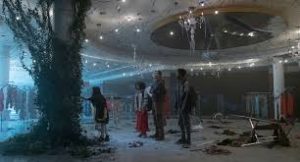
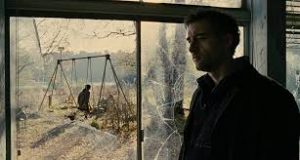
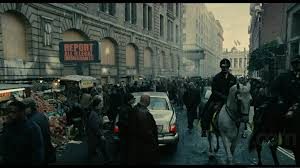
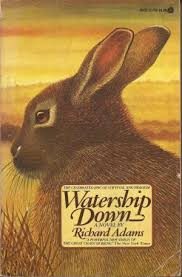

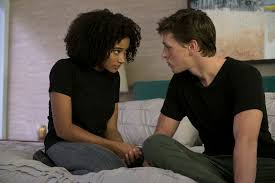
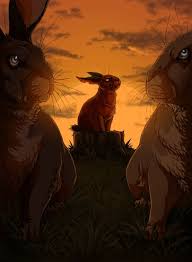
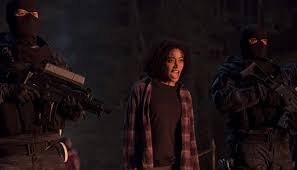
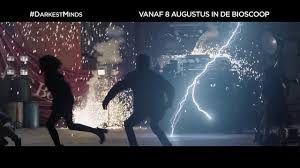

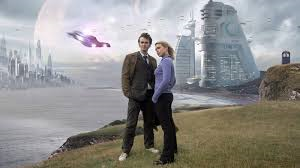


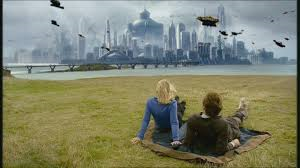

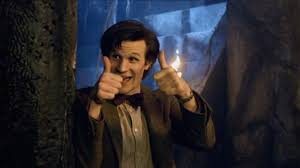
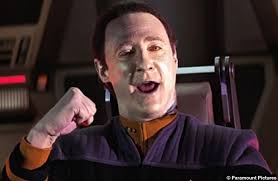

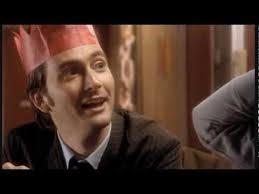
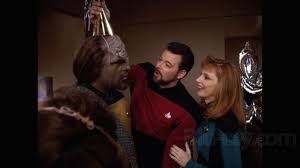
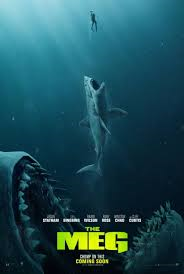
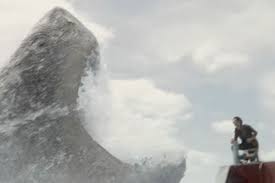
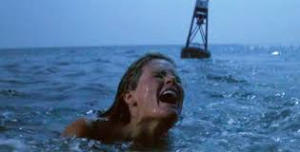
 The director of The Meg, Jon Turteltaub, had the Meg's tongue planted firmly in cheek, (though, technically, almost no shark actually USES its tongue – called a basihyal. ed).
The director of The Meg, Jon Turteltaub, had the Meg's tongue planted firmly in cheek, (though, technically, almost no shark actually USES its tongue – called a basihyal. ed). 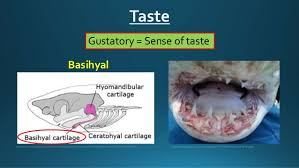
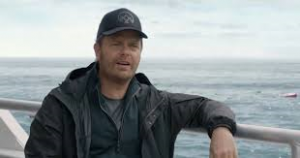
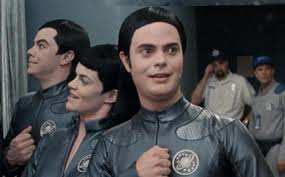

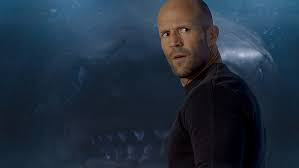
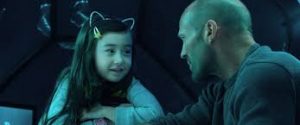

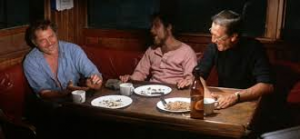
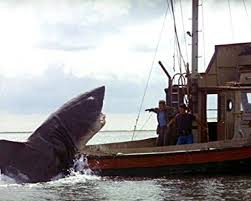
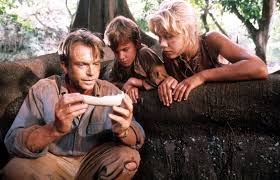
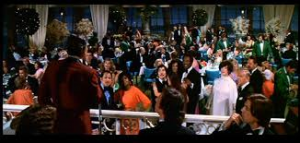

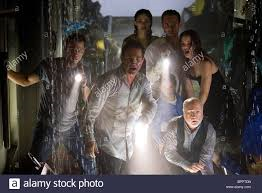



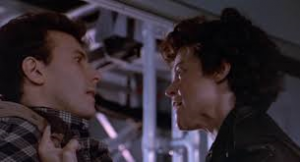
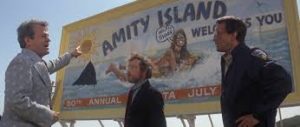
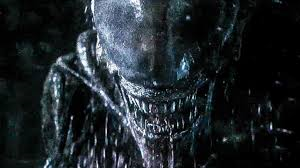
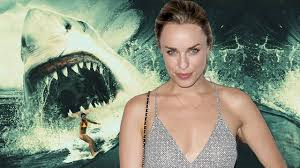
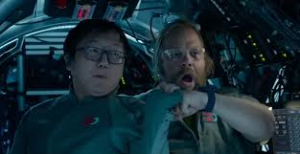

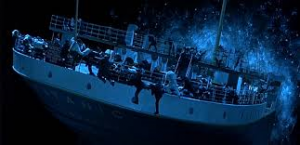
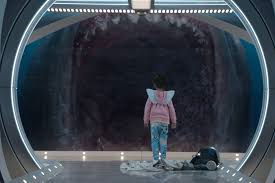
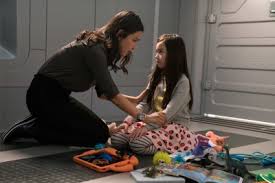
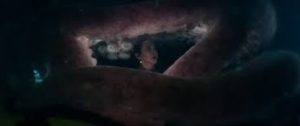
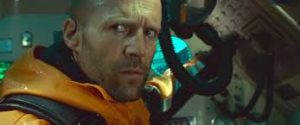
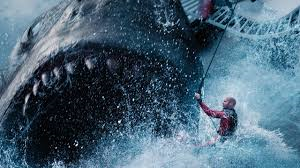























 and reconciled with Christopher. Christopher was 36 years old when A.A. Milne died. There was no particular reason for the premature "killing off" of Christopher Robin's father in this Disney misadventure except, perhaps, to explain why Christopher was in an unfulfilling job at a luggage factory. Reality would have provided a better plot point here too. In fact, Christopher rejected all of the money made from his father’s books and ran his own bookstore instead. This could easily have been worked in as a far more interesting character development issue.
and reconciled with Christopher. Christopher was 36 years old when A.A. Milne died. There was no particular reason for the premature "killing off" of Christopher Robin's father in this Disney misadventure except, perhaps, to explain why Christopher was in an unfulfilling job at a luggage factory. Reality would have provided a better plot point here too. In fact, Christopher rejected all of the money made from his father’s books and ran his own bookstore instead. This could easily have been worked in as a far more interesting character development issue.










